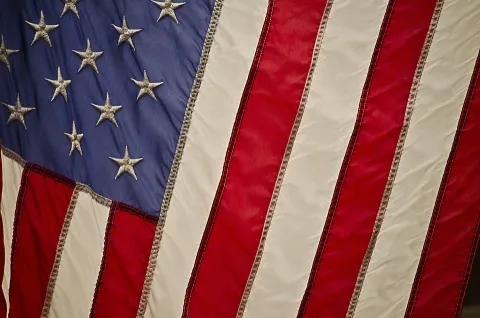Independence Day Memories

The founding fathers could not have picked a better day for a national holiday. The spring rains have usually passed. Summer has arrived in earnest. The Fourth of July is an ideal date to reserve for outdoor activities such as picnicking, swimming, or watching a public fireworks show.
For young boys, Independence Day often holds a special allure. Around the age of six or seven, I put my best effort in to convincing my father to take me to the see the fireworks. His response “If you have seen one you have seen them all” anything but resonated with me.
Years later, I am not sure if my efforts were successful, but the memory of longing and pleading is as fresh as if it were yesterday. Had I had a son, I would have probably wanted to take him to see the fireworks every Fourth of July-not to watch the fireworks, but to watch him watch the fireworks.
For older boys, the Fourth of July is often the first holiday that they celebrate mostly with their friends rather than their families-a day of personal independence I suppose. Learning how to function without constant adult supervision, while planning activities is not only a rite of passage, but an important developmental step for junior high school age boys.
My best Independence Day memories from early adolescence are not my own, but those of self-described bad boy Thomas “Tom” Bailey Aldrich. I first met him in the school library when I was in junior high school through his work of autobiographical fiction “The Story of a Bad Boy”. As I as checking the book out of the library, an amused librarian drew a correlation between the reader and the title of the book that I had selected.
Our lifespans did not overlap. Aldrich was born in 1836 and died in 1907. Years later, with autobiographical fiction, it can be difficult to determine what specifically is autobiographical as opposed to what is simply fictitious.
I expect that Aldrich’s lead up to Independence Day will seem strangely familiar to readers today: “my heart and brain were so full of fire-crackers, Roman candles, rockets, pin-wheels, squibs, and gunpowder in various seductive forms, that I wonder I didn't explode”.
According to Aldrich, “It was a custom observed from time immemorial for the towns-boys to have a bonfire on the Square on the midnight before the Fourth”. At the end of an alley opening up to the town square, on the top of a steep hill, inside a dilapidated old barn, a stage coach long thought to have made its last run offered an ideal opportunity for further mischief making by Aldrich and his friends. It would make one more run, down the hill and in to the bonfire. And so, they pushed and pulled setting the stagecoach in to motion for what was intended to be its final run.
Aldrich wrote “The coach, with an intuitive perception of what was expected of it, plunged into the centre of the kindling shavings, and stopped. The flames sprung up and clung to the rotten woodwork, which burned like tinder. At this moment a figure was seen leaping wildly from the inside of the blazing coach. The figure made three bounds towards us, and tripped over Harry Blake. It was Pepper Whitcomb, with his hair somewhat singed, and his eyebrows completely scorched off! Pepper had slyly ensconced himself on the back seat before we started, intending to have a neat little ride down hill, and a laugh at us afterwards. But the laugh, as it happened, was on our side, or would have been, if half a dozen watchmen had not suddenly pounced down upon us, as we lay scrambling on the ground, weak with mirth over Pepper's misfortune. We were collared and marched off before we well knew what had happened”.
Fortunately for him and his friends, as they soon discovered, the cells at the jail were all full. Left unattended they escaped through an open window, but not before Aldrich noted “I don't think I ever saw a more "wrecked" expression on any human countenance than Pepper Whitcomb's presented. His look of natural astonishment at finding himself incarcerated in a jail was considerably heightened by his lack of eyebrows”.
- Log in to post comments